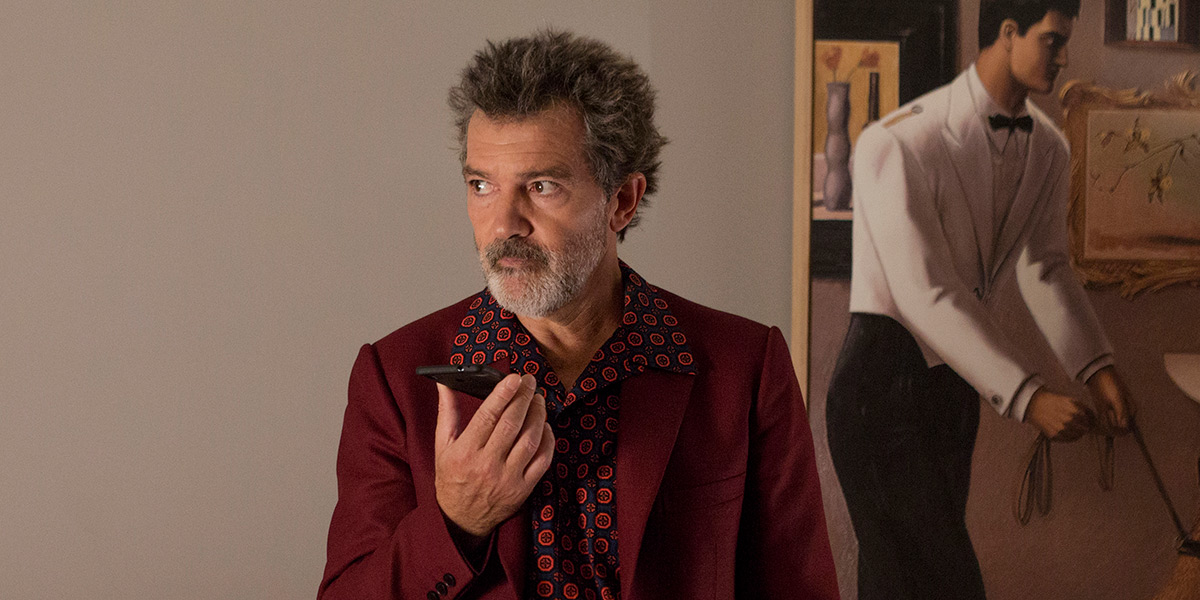Photo credit: Courtesy of TIFF
A young multi-hyphenate and a seasoned director takes turns at auto-fictitious films.
Nine years ago at the Ryerson Theatre in Toronto, Pedro Almodóvar and Antonio Banderas screened their first collaboration in over 22 years, The Skin I Live In at the festival. That’s when the process of thinking about Pain and Glory really started for the actor, he said at the film’s TIFF premiere. Banderas worked with the Spanish auteur on his first film, “Labyrinth of Passion,” and the pair continued to work together for a few years before Banderas’ appeal crossed the Atlantic into Hollywood.
After Julietta in 2016, one of Almodóvar’s least explicitly introspective films, the director returns to palpate audiences with a fictitious re-telling of a wayward directors played by Banderas, who takes up heroin to self-soothe the overwhelming pain (both mental and physical) of his existence.
With his usual impeccable use of costume and set design to paint a vivid image (Almodóvar believes film should re-tell lives experiences with more beauty), most of Salvador’s pain is captured in the small steps, winces and long stares of Banderas’ portrayal. Split between present day in Madrid and the fictitious director’s childhood in quaint Spanish villages, in the film Penelope Cruz — another of Almodóvar’s frequent collaborators — features as Salvador’s long-suffering but ultimately sympathetic mother in her youth.
Ultimately about harnessing the power of pain, Pain and Glory is charming, self-referential and quintessential Almodóvar that fits neatly into the director’s canon.


While “Pain and Glory” debuted at Cannes, Shia LaBeouf-penned Honey Boy, directed by Alma Ha’rel, marked its international premiere in Toronto. When Shia LaBeouf announced he would be writing a film based on growing up in the industry, the public excitement was intense. Bits of his story were know, others weren’t. Much like Almodovar’s film, the story oscillates between two times periods; here the difference between periods is 10 years. It opens in 2005 on a set that very much resembles Michael Bay’s Transformers series (audibly, at the very least) with a burning plane and moans of would-be Optimus Prime off-camera. The opening montage is followed by a stay at a rehab facility that triggers memories of young Otis’ father, 10 years prior.
In one of the most poignant scenes in the film, Otis says to his court-ordered therapist: “The only thing my father gave me—that was of any value—was pain. And you want to take that away from me?” Featuring haunting themes of chickens, drug abuse and a debut performance from British musical artist FKA Twigs, Honey Boy is sure to pick up more than a few awards and earn the public’s delight along the way.








